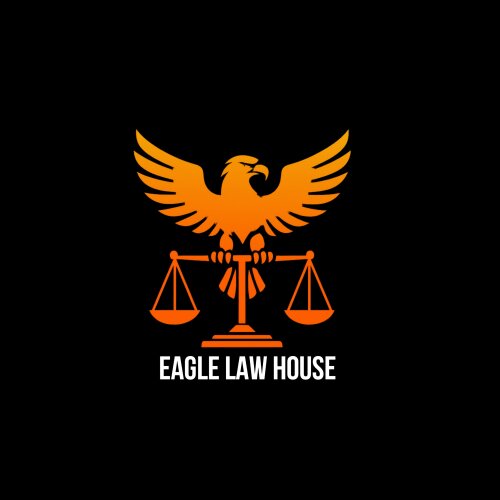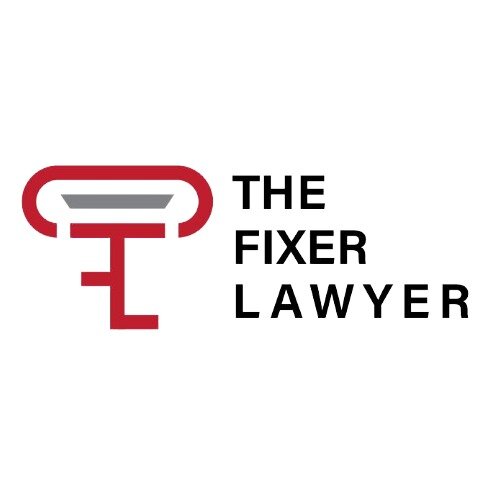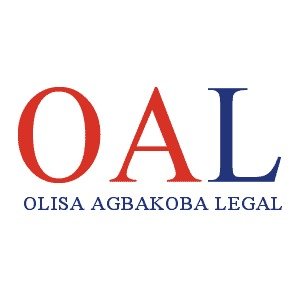Best Landlord & Tenant Lawyers in Nigeria
Share your needs with us, get contacted by law firms.
Free. Takes 2 min.
Free Guide to Hiring a Real Estate Lawyer
Or refine your search by selecting a city:
List of the best lawyers in Nigeria
Legal guides written by Adeola Oyinlade & Co:
- Procedure and Requirements for Work Permit and Visas in Nigeria
- The Step-By-Step Procedure of How to Apply for Microfinance Bank License Online in Nigeria
- How to Ensure the Smooth Recognition and Enforcement of Foreign Judgments in Nigeria
Nigeria Landlord & Tenant Legal Questions answered by Lawyers
Browse our 27 legal questions about Landlord & Tenant in Nigeria and read the lawyer answers, or ask your own questions for free.
- About rent increament
- I was given 2 months and 28 days notice of increament of rent , I refused to pay and I was given 7days quit notice , my rent was increased by 50%
-
Lawyer answer by CO-dunni Law Solicitors
Although this increase is unconscionable, the 7days notice is valid if your rent has expired. Unless you have an alternative arrangement for accommodation. I suggest you find go and negotiate with your Landlord.
Read full answer - My house rent is expiring on march 28 next year and my landlord gave me quick notice to vacate the property on march 28 . My question is by Imo state Nigeria law is he not supposed to give me time to vacate to vacate after my rent is due
- My house rent is expiring on march 28 next year and my landlord gave me quick notice to vacate the property on march 28 . My question is by Imo state Nigeria law is he not supposed to give me time to vacate to vacate after my rent is due
-
Lawyer answer by CO-dunni Law Solicitors
There are several gaps to your question, first you did not mention the date on the Notice, another you did not mention the type of tenancy, whether it is a yearly Tenancy or a bi-annual Tenancy. The Notice to Quit...
Read full answer - I moved into a self-contained apartment in October 2024, and I paid one year's rent. My landlord issued a notice to quit to me on 23rd July 2025. What does the law say about the 3-month notice?
- I want to know if I should insist on a six-month notice or if I should leave on or before 23rd October.I moved into a self-contained apartment in October 2024, and I paid one year's rent. My landlord issued a notice to quit to me on 23rd July 2025. What... Read more →
-
Lawyer answer by Remedium Reel Attorneys
What would generally determine whether the 3 months notice is if there's a written agreement between you and the landlord. (1) If the agreement spells out that you're entitled to 3 months notice, it's valid. (2) If the agreement is...
Read full answer
About Landlord & Tenant Law in Nigeria
Landlord and tenant law in Nigeria governs the rental relationship between property owners (landlords) and those who occupy their properties (tenants). This legal field covers everything from lease agreements and tenant rights to procedures for eviction and rent control. The aim is to ensure a fair and balanced relationship between landlords and tenants, providing security of tenure for tenants and ensuring landlords can achieve a fair return on their property investments.
Why You May Need a Lawyer
There are several situations where legal assistance may be necessary in landlord and tenant matters:
- Drafting or Reviewing a Lease Agreement: Having a lawyer draft or review a lease agreement can ensure that the terms are legal, clear, and fair.
- Dispute Resolution: Whether it's a disagreement over repairs, rent increases, or other tenancy issues, a lawyer can help mediate and resolve disputes.
- Eviction Proceedings: If a landlord needs to evict a tenant or if a tenant faces eviction, legal representation can help navigate through the legal process, which is often complex and time-sensitive.
- Protection of Rights: A lawyer can assist tenants in enforcing their rights under the law, such as ensuring safe living conditions or contesting wrongful eviction.
- Property Recovery: In cases where a tenant refuses to vacate a property after the expiration of a lease, legal action might be necessary for recovery.
Local Laws Overview
Landlord and tenant laws in Nigeria can vary depending on the state, as each state may enact its own specific legislation. However, there are several key aspects that are generally applicable:
- Tenancy Agreements: These should be in writing for clarity and legal enforceability, detailing the terms and conditions under which a property is rented.
- Rent Control: Some states have laws that regulate the amount of rent that can be charged or increased, ensuring affordability for tenants.
- Rights and Duties: Both landlords and tenants have specific rights and obligations under the law, including maintenance responsibilities and respect for the enjoyment of the property.
- Eviction Processes: There are legal procedures that must be followed for eviction, requiring court orders and notices.
- Security Deposits: These are typically regulated to protect tenant funds and ensure proper account upon termination of tenancy.
Frequently Asked Questions
What should be included in a tenancy agreement?
A tenancy agreement should include the duration of the lease, rent amount and payment schedule, responsibilities for maintenance, security deposit details, house rules, and conditions for termination.
Can a landlord increase my rent without notice?
No, landlords are required by law to provide advance notice, typically dictated by state law, before any rent increases take effect.
What can I do if my landlord does not carry out necessary repairs?
If a landlord fails to make necessary repairs after being notified, tenants may seek legal advice or report the issue to relevant authorities for action.
How long must a notice to quit be in Nigeria?
The notice period generally depends on the tenancy type, such as weekly, monthly, or yearly, but it must typically comply with the terms of the tenancy agreement and statutory requirements.
What happens if a tenant refuses to leave after a quit notice?
If a tenant refuses to vacate after a proper notice, the landlord will need to seek a court order to legally evict the tenant.
Can a tenant withhold rent for any reason?
Withholding rent is generally not advised unless there is a severe legal issue recognized by law, such as unresolved hazards to health or safety.
Is a verbal tenancy agreement valid?
While verbal agreements can be valid, they are not advisable as they can be difficult to enforce in the event of a dispute. Written agreements provide clarity and legal security.
What are a tenant's responsibilities?
Tenants are generally responsible for keeping the property in a clean and sanitary condition, promptly reporting maintenance issues, and avoiding damage to the property.
Do all states in Nigeria have the same landlord and tenant laws?
No, landlord and tenant laws can differ from one state to another within Nigeria. It's important to check local rules and regulations.
Can I negotiate the terms of my lease agreement?
Yes, tenants can and should negotiate lease terms to ensure they understand and agree to all conditions before signing.
Additional Resources
For further assistance, individuals can reach out to various resources and organizations:
- Lagos State Tenancy Law: Check this legislation for regulations specific to Lagos State.
- Nigerian Bar Association (NBA): Provides legal aid and can connect you with professionals specializing in landlord-tenant law.
- State Housing Authorities: These bodies can offer guidance, especially in matters relating to rent control and tenant rights.
Next Steps
If you need legal assistance in landlord and tenant matters:
- Contact a qualified lawyer specializing in landlord and tenant law for a consultation.
- Check for any local legal aid organizations that may offer free or low-cost services.
- Gather all relevant documents, agreements, and correspondence related to your tenancy to provide your lawyer with a clear picture of your situation.
- Stay informed about your rights and obligations to prevent legal issues.
Lawzana helps you find the best lawyers and law firms in Nigeria through a curated and pre-screened list of qualified legal professionals. Our platform offers rankings and detailed profiles of attorneys and law firms, allowing you to compare based on practice areas, including Landlord & Tenant, experience, and client feedback.
Each profile includes a description of the firm's areas of practice, client reviews, team members and partners, year of establishment, spoken languages, office locations, contact information, social media presence, and any published articles or resources. Most firms on our platform speak English and are experienced in both local and international legal matters.
Get a quote from top-rated law firms in Nigeria — quickly, securely, and without unnecessary hassle.
Disclaimer:
The information provided on this page is for general informational purposes only and does not constitute legal advice. While we strive to ensure the accuracy and relevance of the content, legal information may change over time, and interpretations of the law can vary. You should always consult with a qualified legal professional for advice specific to your situation.
We disclaim all liability for actions taken or not taken based on the content of this page. If you believe any information is incorrect or outdated, please contact us, and we will review and update it where appropriate.
Browse landlord & tenant law firms by city in Nigeria
Refine your search by selecting a city.

















